The Women in Leadership category at this year’s Local Adaptation Champions Awards spotlights women leaders at the local, national, or global level who have designed or are implementing climate-resilience efforts in and for local communities.
For 2023, GCA invited applications from individual women and women’s groups championing the cause of local adaptation in a variety of ways, from those who are part of government and non-government organizations to women working in the private sector or for educational institutions. The applications received for this category were impressive in both their range and impact, and the final five nominees are implementing ground-breaking work on four different continents.
Pastoral Women’s Council Tanzania
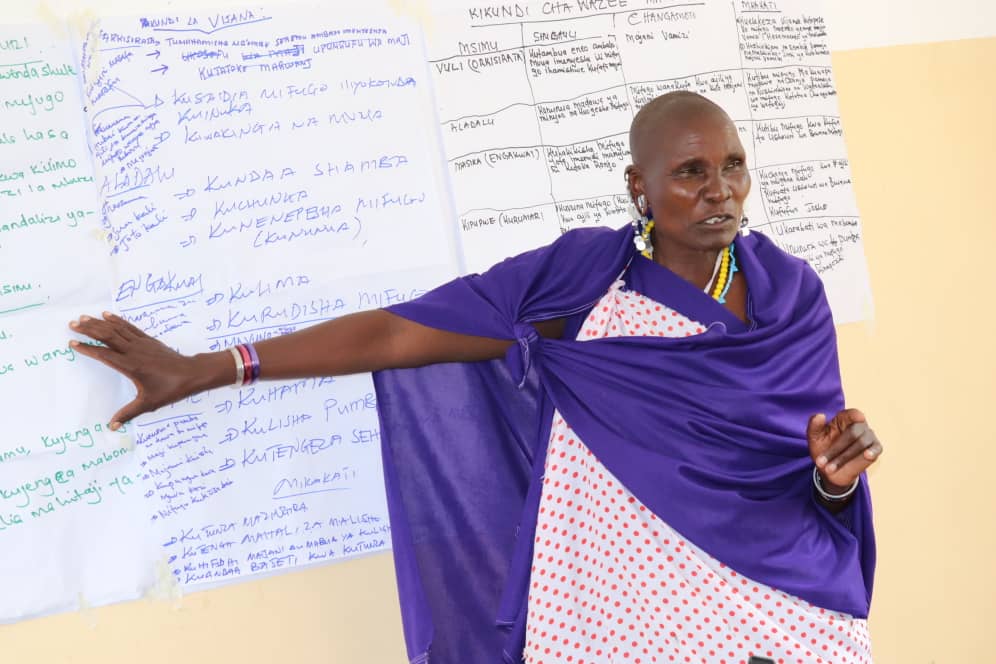 In three provinces of northern Tanzania, the Pastoral Women’s Council Tanzania enhances Indigenous pastoralist women’s leadership capabilities to build women’s capacity to achieve equality as decision-makers in pastoralist societies. The Lake Natron Community has been nominated as an network for its members’ commitment to implementing its action plans in a region that is particularly vulnerable to climate change-related hazards like droughts and flooding, which threaten livelihoods and create food insecurity. Maanda Ngoitiko, Co-founder and Executive Director, explains that empowering women is vital to ensure activities implemented address their priorities: “Although pastoralist men and women are equally exposed to climate shocks and stress, women have fewer opportunities to access and control productive resources or engage in alternative climate resilience livelihoods and incomes. Their knowledge of the environment is crucial but often goes ignored in drought-mitigation and adaptation strategies.”
In three provinces of northern Tanzania, the Pastoral Women’s Council Tanzania enhances Indigenous pastoralist women’s leadership capabilities to build women’s capacity to achieve equality as decision-makers in pastoralist societies. The Lake Natron Community has been nominated as an network for its members’ commitment to implementing its action plans in a region that is particularly vulnerable to climate change-related hazards like droughts and flooding, which threaten livelihoods and create food insecurity. Maanda Ngoitiko, Co-founder and Executive Director, explains that empowering women is vital to ensure activities implemented address their priorities: “Although pastoralist men and women are equally exposed to climate shocks and stress, women have fewer opportunities to access and control productive resources or engage in alternative climate resilience livelihoods and incomes. Their knowledge of the environment is crucial but often goes ignored in drought-mitigation and adaptation strategies.”
Madat Balochistan
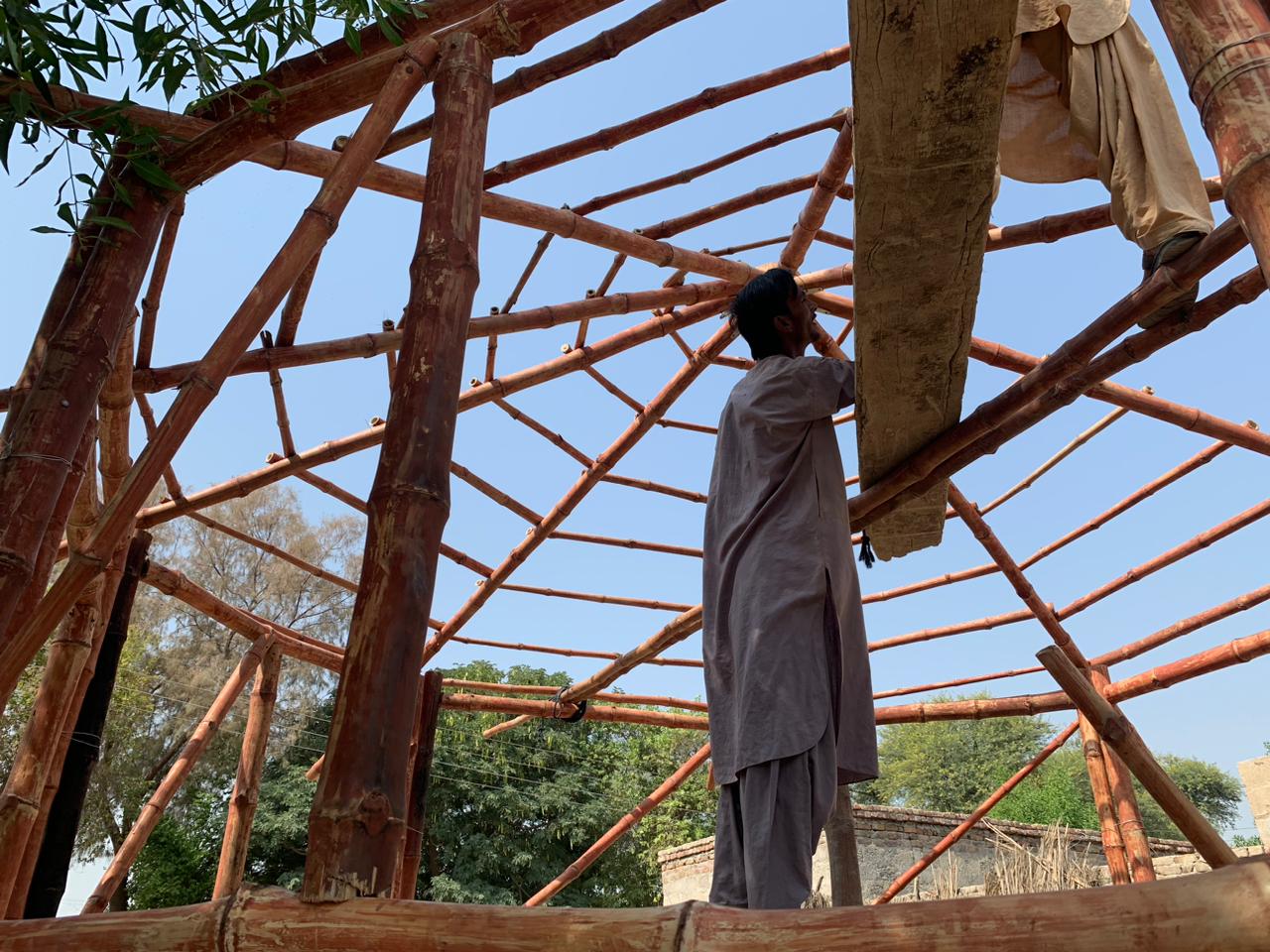 Maryam Jamali has been nominated for her work with Madat Balochistan, a woman-led initiative in Gandakha, Balochistan, a region of Pakistan that has seen successive destructive floods. As the Co-Founder and Primary Organizer of Activities, Jamali has led the community’s efforts to design and build climate change-resilient homes that are quick to build, protect inhabitants from extreme heat and rainfall, and can be easily relocated if the land is flooded or inhabitants are evicted by landowners. “This project was started by my community, for my community. We knew our people, land, and climate,” Jamali explains, adding that the initiative has given local people autonomy and agency: “For once, we were not reduced to beneficiaries, but were actively involved in rehabilitating, adapting, and protecting ourselves.” So far, more than 250 homes have been built and the initiative has reached more than 1,250 people in this community.
Maryam Jamali has been nominated for her work with Madat Balochistan, a woman-led initiative in Gandakha, Balochistan, a region of Pakistan that has seen successive destructive floods. As the Co-Founder and Primary Organizer of Activities, Jamali has led the community’s efforts to design and build climate change-resilient homes that are quick to build, protect inhabitants from extreme heat and rainfall, and can be easily relocated if the land is flooded or inhabitants are evicted by landowners. “This project was started by my community, for my community. We knew our people, land, and climate,” Jamali explains, adding that the initiative has given local people autonomy and agency: “For once, we were not reduced to beneficiaries, but were actively involved in rehabilitating, adapting, and protecting ourselves.” So far, more than 250 homes have been built and the initiative has reached more than 1,250 people in this community.
Asociación Cooperativa de Producción Agropecuaria El Espino de R.L
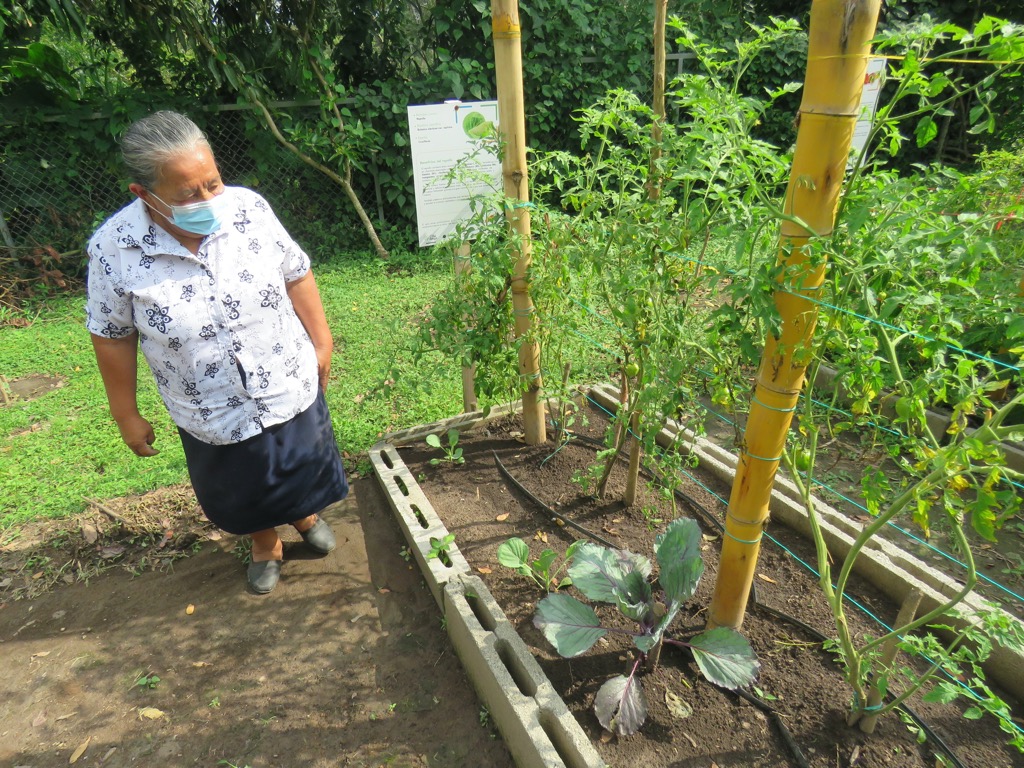 In El Salvador, the Asociación Cooperativa de Producción Agropecuaria El Espino de R.L., also known as the El Espino Cooperative, produces and sells coffee grown in the Arenal Monserrat micro-basin of San Salvador, an area prone to fires in the dry season and landslides and floods in the rainy season. María Lidia Martínez Cañas has grown coffee all her life and has been associated with the cooperative for 20 years. She has been nominated for leading the implementation of a pilot called Nature-Based Solutions (NbS). “Given the national climate change scenarios, coffee cultivation must move to incorporate multifunctional sustainable practices that prepare farmers to produce coffee under new conditions, prevent the effects of climate change, and mitigate damage,” Martínez Cañas says of the importance of this adaptation initiative. NbS builds climate resilience and reduces farmers’ vulnerability to climate variability by increasing water infiltration and preventing erosion.
In El Salvador, the Asociación Cooperativa de Producción Agropecuaria El Espino de R.L., also known as the El Espino Cooperative, produces and sells coffee grown in the Arenal Monserrat micro-basin of San Salvador, an area prone to fires in the dry season and landslides and floods in the rainy season. María Lidia Martínez Cañas has grown coffee all her life and has been associated with the cooperative for 20 years. She has been nominated for leading the implementation of a pilot called Nature-Based Solutions (NbS). “Given the national climate change scenarios, coffee cultivation must move to incorporate multifunctional sustainable practices that prepare farmers to produce coffee under new conditions, prevent the effects of climate change, and mitigate damage,” Martínez Cañas says of the importance of this adaptation initiative. NbS builds climate resilience and reduces farmers’ vulnerability to climate variability by increasing water infiltration and preventing erosion.
Puspita Bahari
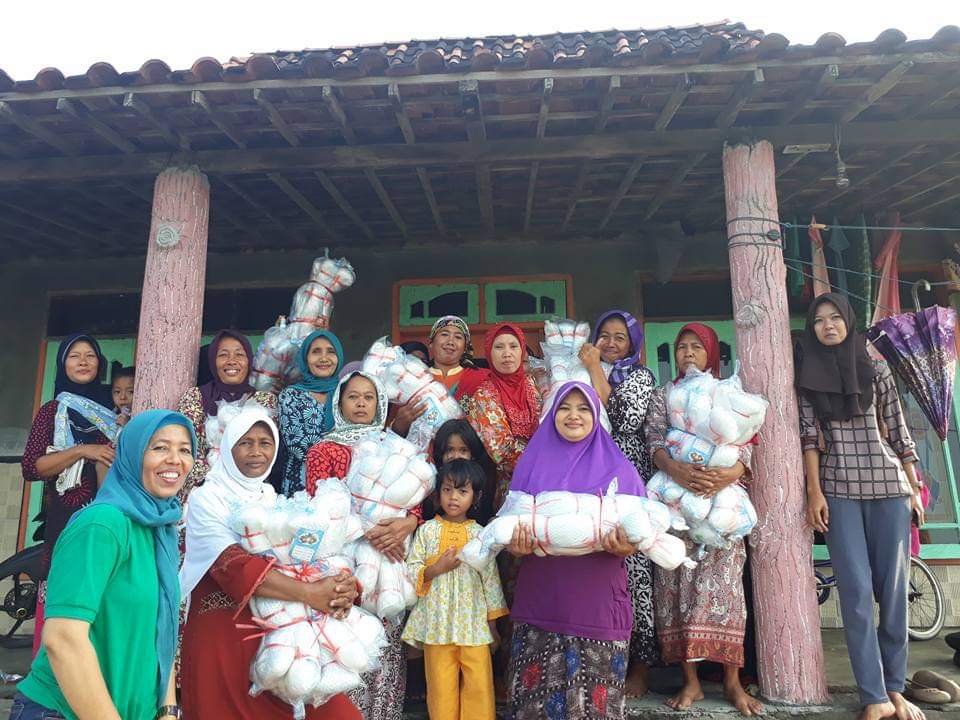 In several coastal villages in Indonesia, Puspita Bahari/Indonesia Fisherwoman Sisterhood (PPNI) is working to empower fisherwomen and strengthen cooperation between them. By developing a solidarity movement among women in small-scale fisheries, the initiative enhances fisherwomen’s confidence and capacity to address climate change. Masnuah, leader at Puspita Bahari and member of Indonesia Fisherwoman Sisterhood, has been nominated for her work at the local, district, and national levels. Masnuah explains that the project is also concerned with increasing understanding of the role of women in climate change adaptation: “Women’s contribution to the fisheries sector, including regarding climate issues, tends to be invisible. But so many women are initiators or actors for change.” Masnuah is also the chair of the Southeast Asia in World Forum of Fisher Peoples and recognizes the need for collaboration: “Solidarity is the key to collective action for addressing the problem.”
In several coastal villages in Indonesia, Puspita Bahari/Indonesia Fisherwoman Sisterhood (PPNI) is working to empower fisherwomen and strengthen cooperation between them. By developing a solidarity movement among women in small-scale fisheries, the initiative enhances fisherwomen’s confidence and capacity to address climate change. Masnuah, leader at Puspita Bahari and member of Indonesia Fisherwoman Sisterhood, has been nominated for her work at the local, district, and national levels. Masnuah explains that the project is also concerned with increasing understanding of the role of women in climate change adaptation: “Women’s contribution to the fisheries sector, including regarding climate issues, tends to be invisible. But so many women are initiators or actors for change.” Masnuah is also the chair of the Southeast Asia in World Forum of Fisher Peoples and recognizes the need for collaboration: “Solidarity is the key to collective action for addressing the problem.”
ActionAid Vanuatu
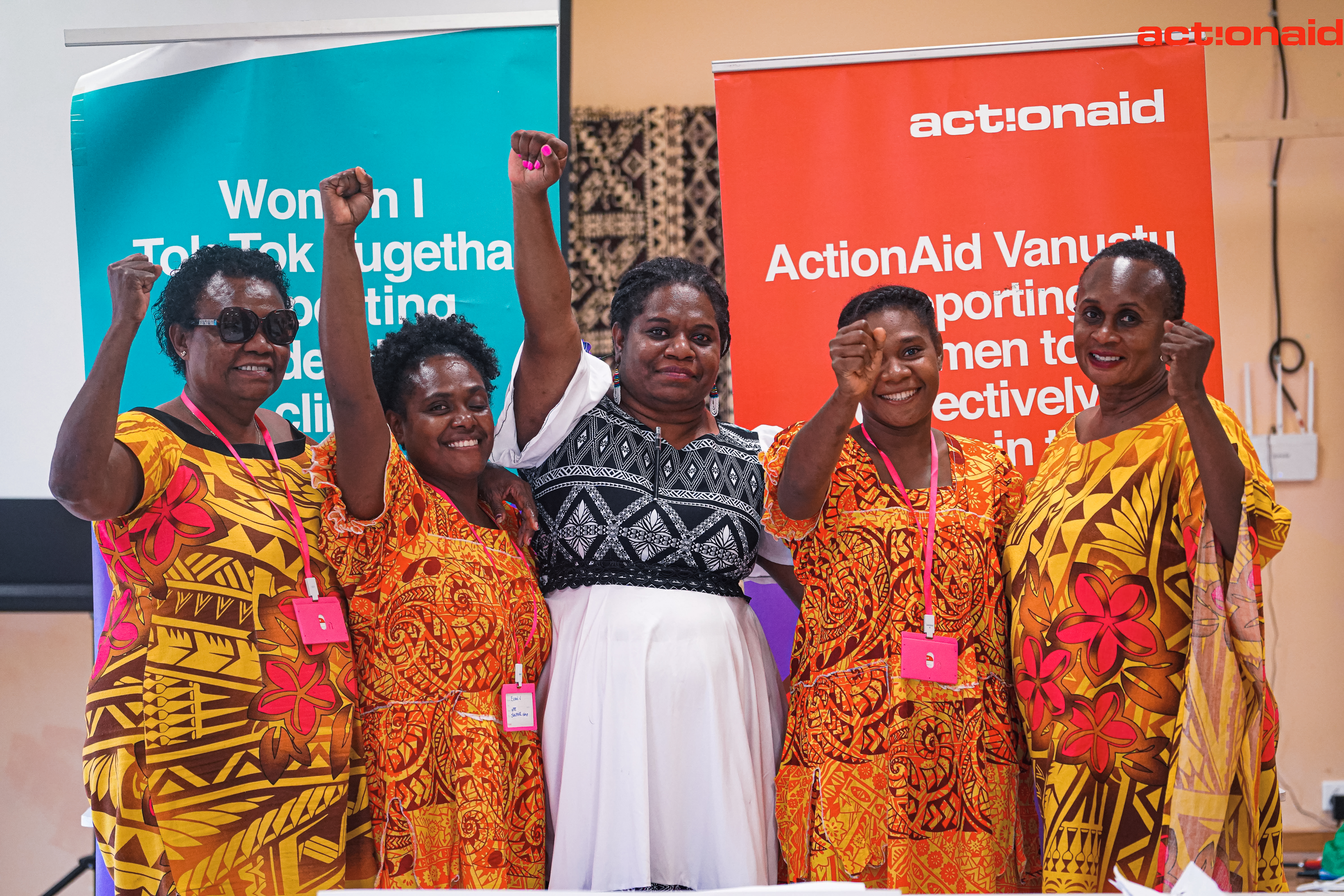 Flora Vano, Country Director of ActionAid Vanuatu, has been nominated for her work in spearheading the WITTT Sunshine initiative, which is led by women with disabilities, focuses on their unique needs and priorities, and supports their collective efforts to ensure inclusive humanitarian responses. As Sarah Bayjoo, Philanthropy and Partnerships Manager at ActionAid explains, “In a climate-related disaster-prone country like Vanuatu, the intersectional discrimination faced by women with disabilities fuels their increased vulnerability in times of crisis.” The WITTT Sunshine network reduces the vulnerability of women with disabilities to climate change by providing them with training and tools to lead disaster preparedness for themselves and the disability community. “WITTT Sunshine ensures women with disabilities are not just recipients of aid but are leading the response,” Bayjoo adds.
Flora Vano, Country Director of ActionAid Vanuatu, has been nominated for her work in spearheading the WITTT Sunshine initiative, which is led by women with disabilities, focuses on their unique needs and priorities, and supports their collective efforts to ensure inclusive humanitarian responses. As Sarah Bayjoo, Philanthropy and Partnerships Manager at ActionAid explains, “In a climate-related disaster-prone country like Vanuatu, the intersectional discrimination faced by women with disabilities fuels their increased vulnerability in times of crisis.” The WITTT Sunshine network reduces the vulnerability of women with disabilities to climate change by providing them with training and tools to lead disaster preparedness for themselves and the disability community. “WITTT Sunshine ensures women with disabilities are not just recipients of aid but are leading the response,” Bayjoo adds.